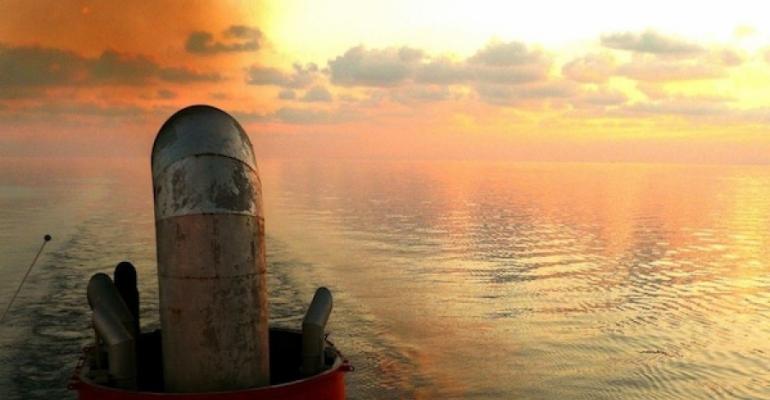The recent meeting of the International Maritime Organization (IMO) that was intended to discuss the issue of reducing the amount of CO2 that commercial ships emit into the world’s atmosphere was hijacked by the Global Warming crowd resulting in the IMO demanding that shipping reduces its CO2 emissions by 50% by 2050.
Read more: Shipping industry lauds IMO agreement to cut GHG emissions by 'at least' 50% by 2050
No statistical evidence of the present level of shipping’s CO2 emissions was produced however.
The Germans accused shipping of emitting the same level of CO2 that it does as a nation. They failed to disclose the details of their own emissions however, and the fact that the area of the Globe covered by Germany is a tiny fraction of the 70% of the World’s surface that is covered by water. Their comparison is worthless but what are they doing to reduce their emissions?
If one was to collect all the 90,000 ships together then they would occupy a small fraction of the area of Germany.
One statistician sent me some arguments that falsely measured the shipping miles that the fleet covers and tried to attach CO2 to those miles.
One simple way to measure the potential CO2 levels is to see the amount of ship’s bunkers (fuel) that are consumed on a weekly, monthly and yearly basis and calculate the CO2 emissions that those volumes would produce. These stats could then be used to see what could be done to clean up the present bunkers and maintain the existing engines.
The absence of proper statistics on shipping is appalling and the IMO must withdraw its conclusions and institute a detailed review of ship’s operations before setting any objectives for the future.
Where are Bimco, Intertanko and other shipowner associations on this?
More troubling is the position of the Marshall Islands who’s Governor spoke intensely about Global Warming and its possible on his tiny islands.
Read more: Marshall Islands says the IMO faces 'moment of truth' on Greenhouse Gas emissions
The fact the second largest “Open Registry” is based but not managed there and is privately owned by Americans does not grant the national leader any special status. The very minimal amount of shipping that operates near the islands means that a global reduction of ship’s emissions will have little effect on the future rising waters of which so far there is no evidence.
The IMO has no authority to force the shipping industry to set emission targets particularly when it does not know what the present levels are.
Meetings arranged by a consortium of shipowners associations, oil companies and engine builders should attempt to come up with ways to reduce ship emissions without bankrupting the most essential and efficient service industry in the World.
Copyright © 2024. All rights reserved. Seatrade, a trading name of Informa Markets (UK) Limited. Add Seatrade Maritime News to your Google News feed.


